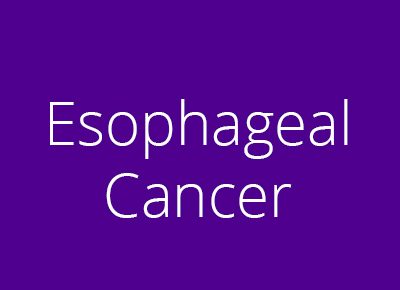What is it?
Esophageal Cancer is a condition in which a malignant tumor occurs in the esophagus, otherwise known as the food pipe connecting the mouth to the stomach. There are two types: adenocarcinoma and squamous cell carcinoma. Squamous cell carcinoma is associated with smoking and alcohol, while Adenocarcinoma is associated with acid reflux and Barrett’s esophagus.
What are the symptoms?
Symptoms include difficulty swallowing, heartburn, weight loss, vomiting blood, chest pain, and regurgitation of food.
How is it diagnosed?
Esophageal cancer can be diagnosed via imaging studies such as, a barium swallow, esophagogastroduodenoscopy (EGD) and biopsy. Chest and thoracic CTs/MRI and PET scans may be used for determining the stage of the disease once it has been diagnosed.
How is it treated?
If the cancer is localized in the esophagus, surgery to remove it is the preferred treatment. Chemotherapy or radiation therapy may be used in addition to surgery. Local symptomatic therapy can be performed using an endoscope and may include dilation of the esophagus or insertion of a stent to keep the esophagus open. These endoscopic procedures are done to help relieve swallowing difficulties.
